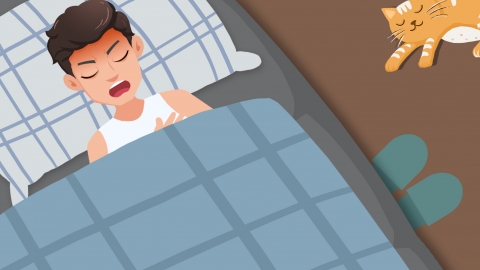What are the symptoms of recurrent tuberculous meningitis?
Generally, if tuberculous meningitis recurs after treatment, it usually presents with the reappearance of previous symptoms or the emergence of new symptoms, mainly including exacerbated headache, recurrent fever, neurological dysfunction, symptoms related to increased intracranial pressure, and changes in mental status. A detailed analysis is as follows:

1. Exacerbated Headache: During recurrence, patients often experience headache symptoms. Initially, the headache may be intermittent and mild, gradually progressing to persistent distending pain. The intensity of the pain is more severe than before, especially worsening in the morning or after physical activity. Pain relief from conventional analgesics is usually ineffective.
2. Recurrent Fever: Patients may experience fever again, typically presenting as low-grade or moderate fever. Some patients may develop irregular fever patterns. The fever lasts for a prolonged period and tends to recur. Although antipyretic medications may temporarily lower body temperature, it usually rises again quickly, significantly differing from the temperature patterns observed during stable periods of the illness.
3. Neurological Dysfunction: Some patients may develop impaired limb movement, such as unilateral limb weakness and unsteady gait. In severe cases, limb paralysis may occur. Other patients may experience facial nerve palsy, manifested as crooked mouth corners and incomplete eyelid closure.
4. Symptoms Related to Increased Intracranial Pressure: Recurrence with worsening intracranial inflammation may lead to elevated intracranial pressure. In addition to headache, patients may experience frequent vomiting, which is typically projectile and not clearly associated with meals. Some patients may develop blurred vision due to increased intracranial pressure compressing the optic nerve.
5. Altered Mental Status: Patients may exhibit listlessness, drowsiness, and delayed responses to external stimuli. Some individuals may become restless, irritable, or even experience confusion, with decreased cognitive ability regarding time, location, or people.
Individuals with a history of tuberculous meningitis are advised to closely monitor their health status in daily life. If any of the above symptoms occur, timely medical evaluation and follow-up are necessary. During treatment, strictly adhere to medical instructions regarding appropriate dosage and treatment duration; do not discontinue or reduce medication independently. Additionally, maintain regular sleep patterns and a balanced diet to enhance physical immunity and reduce the risk of recurrence.





